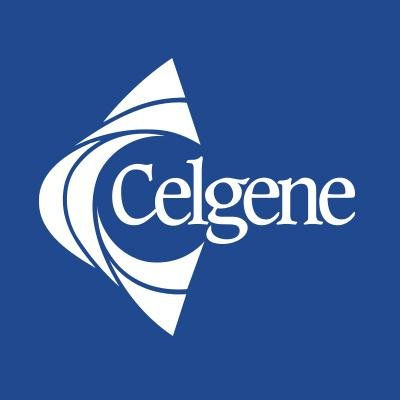预约演示
更新于:2025-05-07
CK1
更新于:2025-05-07
基本信息
别名 Casein kinase 1 (CK1) family、CK1 family、酪蛋白激酶Ⅰ |
简介- |
关联
63
项与 CK1 相关的药物作用机制 CK1α抑制剂 [+3] |
在研机构 |
原研机构 |
非在研适应症 |
最高研发阶段批准上市 |
首次获批国家/地区 美国 |
首次获批日期2005-12-27 |
作用机制 CK1ε抑制剂 [+1] |
在研机构 |
原研机构 |
非在研适应症- |
最高研发阶段临床3期 |
首次获批国家/地区- |
首次获批日期1800-01-20 |
作用机制 CK1ε抑制剂 [+1] |
在研机构 |
在研适应症 |
非在研适应症 |
最高研发阶段临床2期 |
首次获批国家/地区 美国 |
首次获批日期2021-02-05 |
1,357
项与 CK1 相关的临床试验NCT06461988
An Open-Label, Non-Randomized, Phase II Study to Study the Efficacy of Talquetamab (JNJ-64407564) and Lenalidomide as Post Stem Cell Transplant Maintenance in Multiple Myeloma (OPTIMMAL)
Multiple myeloma (MM) is a heterogenous plasma cell malignancy characterized by clonal proliferation of plasma cells and organ damage. Autologous transplantation with high dose chemotherapy is the standard of care in frontline treatment of eligible patients with MM.
开始日期2025-11-01 |
申办/合作机构  Stanford University Stanford University [+1] |
NCT06932562
A Randomized, Open-Label, Controlled Phase 3 Study of Comparing Daratumumab, Lenalidomide and Dexamethasone Induction Followed by Linvoseltamab Versus Continued Daratumumab, Lenalidomide, and Dexamethasone in Newly Diagnosed Transplant Ineligible Multiple Myeloma Patients
This study is researching an experimental drug called linvoseltamab. The study is focused on participants with newly diagnosed multiple myeloma (NDMM) who are ineligible for autologous stem cell transplantation (transplant-ineligible).
The main purpose of this study is to compare the effect and safety of linvoseltamab with the effect and safety of the standard treatment.
The main purpose of this study is to compare the effect and safety of linvoseltamab with the effect and safety of the standard treatment.
开始日期2025-09-01 |
申办/合作机构 |
NCT06792825
HM2023-43: A Phase 2 Trial of Tafasitamab in Combination With Lenalidomide+Rituximab in Treatment-naive Follicular Lymphoma and Marginal Zone Lymphoma
The study follows a Simon's two-stage phase II trial design to evaluate the safety and efficacy of tafasitamab added to rituximab and lenalidomide for two treatment-naïve, parallel, independent cohorts: follicular lymphoma (FL) and marginal zone lymphoma (MZ). Each cohort, FL and MZ, will be evaluated separately. This study is presented to the patient and consent is signed prior to the initiation of treatment for their primary malignancy.
开始日期2025-07-01 |
申办/合作机构 |
100 项与 CK1 相关的临床结果
登录后查看更多信息
100 项与 CK1 相关的转化医学
登录后查看更多信息
0 项与 CK1 相关的专利(医药)
登录后查看更多信息
1,989
项与 CK1 相关的文献(医药)2025-12-01·Histochemistry and Cell Biology
Identifying CSNK1E as a therapeutic target in thyroid cancer among the core circadian clock genes
Article
作者: Hsu, Yi-Chiung ; Huang, Shih-Yuan ; Tsai, Chung-Hsin ; Cheng, Shih-Ping ; Chang, Shao-Chiang ; Chi, Shun-Yu
2025-12-01·Molecular Genetics and Genomics
Proto-oncogene DEK binds to pre-mRNAs and regulates the alternative splicing of Hippo signaling genes in HeLa cells
Article
作者: Chang, Yongjie ; Sun, Wei ; Chen, Dong ; Wu, Yunfei ; Yang, Bin ; Liu, Dongbo ; Han, Jing ; Wang, Cong
2025-05-01·Cellular Signalling
LZTS3 represses tumorigenesis and radioresistance via CK1δ and β-TrCP-mediated ubiquitination pathway in lung cancer
Article
作者: Zeng, Yulan ; Hu, Ji ; Liu, Ruiqi ; Chen, Xiaoyan ; Liang, Xiaodong ; Lu, Yanwei ; Fan, Hongjie ; Zhang, Haibo ; Wang, Xian ; Huang, Luanluan ; Wang, Xiao ; Tian, Chen
72
项与 CK1 相关的新闻(医药)2025-04-27
·精准药物
1. 研究背景分子胶降解剂(Molecular glue degraders, MGs)通过重构E3泛素连接酶与靶蛋白的相互作用界面,诱导形成三元复合物以启动蛋白酶体降解通路,为靶向传统不可成药靶点提供了创新范式。然而,现有研究手段存在显著局限性:化学蛋白质组学与亲和富集质谱技术主要聚焦于终末降解事件,难以动态捕获E3连接酶与底物间的瞬时弱相互作用,导致非降解性新底物(neo-substrates)的系统性漏检,这不仅制约了靶点空间的拓展,更影响对分子胶作用机制的深度解析。尤为突出的是,处于临床研究阶段的分子胶(如DKY709)其底物谱系尚未完全解析,且缺乏高通量解析其诱导的E3连接酶互作组的有效工具,这些瓶颈严重阻碍了新一代降解剂的理性设计。2. 研究目的针对上述科学难题,陈小华/谭敏佳团队在《Angew. Chem. Int. Ed.》发表题为《Crosslinking Profiling of Molecular Glue Degrader-Induced E3 Ligase Interactome to Expand Target Space》的研究,开发了基于基因编码光交联非天然氨基酸(UAA)与质谱蛋白质组学联用的全局交联分析策略。本研究构建了三个递进式研究体系:(1) 通过CRBN底物结合域特定位点的UAA整合,实现在活细胞水平精准捕获分子胶(CC-885、DKY709)诱导的CRBN-底物瞬时互作;(2) 系统性鉴定CRBN降解依赖性与非依赖性新底物(FIZ1、ZFP91等),揭示其底物识别基序并并扩展其靶点空间;(3) 基于结构机制设计新型分子胶降解剂CM-2/CM-3,通过TR-FRET和细胞毒性实验验证其通过重塑CRBN互作网络增强抗肿瘤效能的可行性。该技术为分子胶的机制研究及临床转化提供了高效工具,并为克服“不可成药”靶点难题开辟新路径。 3. 研究结果成果一:CRBN互作网络解析通过UAA介导的光交联捕获技术,揭示了CC-885诱导的CRBN动态互作网络。Western blot与质谱联用技术验证了CRBN-GSPT1复合物的特异性形成,阐明CC-885通过精确调控CRBN构象改变实现GSPT1选择性降解的分子基础,为分子胶的靶向性机制提供了直接实验证据。成果二:DKY709底物谱系拓展结合分子对接与定量质谱分析,不仅验证了DKY709的已知降解靶标,更发现FIZ1作为新型CRBN依赖性降解底物。进一步的蛋白丰度测定和Western blot结果证实,FIZ1降解受DKY709诱导,并依赖CRBN介导的泛素-蛋白酶体途径。该研究拓展了CRBN介导的底物谱,同时也为优化临床候选药物的脱靶效应评估提供了关键数据。成果三:理性药物设计突破基于lenalidomide的构效关系优化,成功设计出CM-2、CM-3系列衍生物。分子对接模拟表明,CM-2和CM-3在CRBN结合口袋中具有更优的配体构象,并通过 TR-FRET实验验证了其较高的CRBN亲和力。此外,在MM.1S细胞中,这些新型降解剂表现出更强的细胞毒性和降解活性,表明其在血液瘤治疗中的潜在应用值。 成果四:降解动力学机制阐明分析了分子胶降解剂CM-2和CM-3诱导的靶蛋白降解机制。Western blot结果表明,ZFP91和FIZ1在CM-2处理后显著降解,而蛋白酶体和NEDD8途径抑制实验进一步确认,该降解依赖于CRBN介导的泛素化过程。此外,时间梯度实验揭示了CM-3诱导GSPT1和CK1α降解的动力学模式,为MG降解剂的作用机理提供了更深入的证据。4. 研究结论本研究创新性地构建了光交联蛋白质组学技术平台,实现了分子胶诱导的E3连接酶互作网络解析,并拓展了其潜在靶点范围,为新型降解剂的设计提供了关键结构信息。基于结构机制设计的CM-2、CM-3系列衍生物,在临床前模型中展现出显著优化的药效学特征。该技术平台不仅为分子胶作用机制研究提供了有力工具,更为突破"不可成药"靶点治疗瓶颈开辟了新途径。研究建立的"靶点发现-机制解析-药物设计"三位一体研究范式,为靶向蛋白降解领域的发展提供了方法论创新。声明:发表/转载本文仅仅是出于传播信息的需要,并不意味着代表本公众号观点或证实其内容的真实性。据此内容作出的任何判断,后果自负。若有侵权,告知必删!长按关注本公众号 粉丝群/投稿/授权/广告等请联系公众号助手 觉得本文好看,请点这里↓
蛋白降解靶向嵌合体
2025-04-03
·乐威医药
Monte Rosa Therapeutics是一家专注于分子胶降解剂(Molecular glue degrader,MGD)开发的公司,其研发管线聚焦于难成药靶点(GSPT1、VAV1、NEK7)。去年10月,Monte Rosa在BioRxiv上发表了其最新文章“Mining the CRBN Target Space Redefines Rules for Molecular Glue-induced Neosubstrate Recognition”,阐述了他们分子胶降解剂的开发历程。——背景——分子胶降解剂是一种利用细胞内蛋白质降解机制(如泛素-蛋白酶体、溶酶体等)来降解靶标蛋白的分子。目前研究最为深入的分子胶降解剂是以E3泛素连接酶CRBN为基础的分子胶降解剂,这类药物也被称为CRBN调节药物(Cereblon modulating drugs,CELMoDs)。CELMoD与CRBN结合,形成新的二元复合物界面,通过该界面招募新的底物(Neo-substrate)。已知的Neo-substrate有CK1α、GSPT1、IKZF1、IKZF2、WIZ等,这些都是传统意义上的难成药靶蛋白。这些Neo-substrate通过一个G-loop与CRBN/CELMoD结合,G-loop由β-hairpin α-turn构成,在特定位置有一个共同的甘氨酸,因此也被称为β-hairpin G-loop。目前已知数千种人类蛋白都包含这样的结构。鉴于三元复合物界面的简洁性,作者们试图回答两个问题:是否有更多的G-loop蛋白可被CELMoD诱导降解;除了G-loop,CRBN是否还能与其他结构兼容?——NEK7降解剂的发现——在前半部分中,作者通过计算方法发现了人类蛋白质组中存在大量G-loop蛋白,并明确了这些G-loop蛋白可被化合物诱导接近CRBN,但“接近(Proximity)”是蛋白降解的必要不充分条件:以本文中的Cpd1为例,Cpd1可诱导CK1α,NEK7,SCYL1,MNAT1,ASS1,CHD7,PPIL4等多种蛋白接近CRBN(Turbo-ID实验),但仅有CK1α,PDE6D和少量C2H2 ZFs的含量有明显下降。于是作者探究了一个问题:能否通过对分子胶进行化学改造,使得“接近”转变为“降解”。图1. 本文所用到的分子胶在此基础上,作者将目光投向NEK7(一种与 NIMA 相关的丝氨酸 / 苏氨酸激酶,在自身炎症性疾病中具有治疗相关性)。NEK7激酶结构域的N-lobe上存在一个β-hairpin G-loop,与CK1α具有较高相似性(图2)。在TR-FRET, NanoBRET和TurboID实验中,CRBN和Cpd1,NEK7能形成三元复合物,但在CAL51细胞中,Cpd1对NEK7水平无影响。图2. NEK7激酶结构域作者通过TR-FRET,NanoBRET实验筛选了内部化合物库,发现了Cpd5能诱导NEK7与CRBN形成三元络合物,其EC50值与Cpd1相当,但信号强度高于Cpd1。在CAL51细胞中,Cpd5选择性降解NEK7,且降解谱与Cpd1比相当干净(图3)。图3. A. Cpd1降解谱。B. Cpd5 NanoBRET信号强于Cpd1。C.Cpd5降解谱。作者解析了CRBN-Cpd5-NEK7的复合物晶体结构。首先Cpd5的二氢尿嘧啶片段插入CRBN三色氨酸笼中,咪唑并吡啶环以及后续的尾巴朝向溶剂暴露区,负责与NEK7相互作用。NEK7通过G-loop与CRBN/Cpd5复合物结合,其中G-loop位于咪唑并吡啶环附近,G-loop上的G57,L55,L54主链羰基分别与CRBN W386,H357,N351侧链形成氢键。此外G-loop G-5位的丙氨酸A52较小的侧链避免了与化合物形成冲突。最后,苯基磺酰胺部分更接近于NEK7残基的远端,并且与位于相邻的N-lobe上β-链上的R35和E37形成氢键(图4)。图4. 三元复合物晶体结构及详细互作——VAV1降解剂的发现——前面作者通过基于序列的方式,发现了一千多种CRBN潜在新底物。紧接着作者更换策略,通过基于表面的方式,又发现了新的CRBN底物,这些新发现的底物的degron序列与之前的G-loop完全不同。本公众号前文推送的“MaSIF相关工作”是近年来描述蛋白质表面的重要计算工具。值得注意的是,Monte Rosa这篇工作的共同第一作者正是MaSIF的第一作者。本工作采用的表面相似性算法来源于MaSIF。从CRBN-CC90009-GSPT1三元复合物结构出发,首先提取GSPT1中与参与复合物形成的界面,然后在蛋白质组中搜寻相似的界面。作者将已知的G-loop的蛋白排除在外,希望寻找到新颖的靶标(图5A)。VAV1是B细胞和T细胞受体信号传导的关键介质,且不含G-loop。VAV1表面可划分出27168个patch,将这些patch逐一与GSPT1 degron surface进行匹配,得到较为相似的patch。然后通过蛋白-蛋白对接,过滤掉与CRBN界面有冲突的patch,最后确定VAV1的C末端SH3结构域(SH3c),与GSPT1表面在与CC-90009形成的复合物中与CRBN接触的表面有极高的相似性,且SH3c结构域与GSPT1或其G-loop没有潜在的结构同源性。图5. A.基于表面的CRBN Neo-substrate发现过程 B.VAV1 SH3c表面与GSPT1 degron比较随后作者筛选了内部化合物库,发现Cpd6能够专一地诱导CRBN与VAV1 SH3c形成三元复合物(图6)。图6. Cpd6能够专一地诱导CRBN与VAV1 SH3c形成三元复合物最后,作者解析了VAV1-Cpd6-CRBN的三元复合物结构(图7)。VAV1 SH3c 结构域中的预测参与形成复合物的patch由两个色氨酸残基 W820 和 W831 以及 RT 环的顶端区域(aa797 – 801)形成。图7. VAV1-Cpd6-CRBN的三元复合物结构及关键相互作用——小结——通过计算工具,该工作系统性的发掘了1633种潜在的CRBN新底物,且在已知的β-hairpin G-loop motif之外,发现了新的helical G-loop。(之前的工作已经发现含C2H2锌指结构域是CRBN的潜在底物)该工作进一步拓宽了CRBN底物范围,包含不同功能、结构的蛋白质。通过实验验证,该工作确证了21种含有β-hairpin G-loop或 helical G-loop的新底物,大大拓宽了CRBN底物。不同的CELMoDS,可实现对底物的精准降解,表明基于CRBN的分子胶降解剂大有可为。G-loop motif的发现是基于序列的发掘方法的胜利。回归本质,CELMoDs诱导三元复合物形成这一过程事实上是Neo-substrate的界面与CELMoD-CRBN二元复合物新界面之间的电荷、形状、亲/疏水等的匹配。因此,基于表面的方法使作者成功发现了VAV1也是CRBN的底物,尽管VAV1与GSPT1序列相似性或结构同源性上都很低。该发现同样凸显了CRBN参与PPI相互作用的界面的非凡可塑性(N351、H357、W400),这些位点既能与G-loop相容,也与VAV1的RT-loop相容。最后,Monte Rosa的工作展示了计算工具在分子胶开发中的非凡潜力。参考文献:[1] Petzold, G.; Gainza, P.; Annunziato, S.; Lamberto, I.; Trenh, P.; McAllister, L.; Demarco, B.; Schwander, L.; Bunker, R. D.; Zlotosch, M.; et al. Mining the CRBN Target Space Redefines Rules for Molecular Glue-induced Neosubstrate Recognition. bioRxiv 2024, 2024.2010.2007.616933. DOI: 10.1101/2024.10.07.616933.作者:任宇浩审稿:王瀚平 编辑:郭 政版权声明:本文内容及图片,如有侵权请联系删除。免责声明:本文内容仅作信息交流学习,并不反映任何意见及观点。往期推荐乐威医药亮相2025 DCAT Week乐威医药公益3.12植树行动乐威医药获2024年度EcoVadis承诺奖牌
细胞疗法临床结果免疫疗法
2025-03-28
Monte Rosa Therapeutics是一家专注于分子胶降解剂(Molecular glue degrader,MGD)开发的公司,其研发管线聚焦于难成药靶点(GSPT1、VAV1、NEK7)。去年10月,Monte Rosa在BioRxiv上发表了其最新文章“Mining the CRBN Target Space Redefines Rules for Molecular Glue-induced Neosubstrate Recognition”,阐述了他们分子胶降解剂的开发历程。——背景——分子胶降解剂是一种利用细胞内蛋白质降解机制(如泛素-蛋白酶体、溶酶体等)来降解靶标蛋白的分子。目前研究最为深入的分子胶降解剂是以E3泛素连接酶CRBN为基础的分子胶降解剂,这类药物也被称为CRBN调节药物(Cereblon modulating drugs,CELMoDs)。CELMoD与CRBN结合,形成新的二元复合物界面,通过该界面招募新的底物(Neo-substrate)。已知的Neo-substrate有CK1α、GSPT1、IKZF1、IKZF2、WIZ等,这些都是传统意义上的难成药靶蛋白。这些Neo-substrate通过一个G-loop与CRBN/CELMoD结合,G-loop由β-hairpin α-turn构成,在特定位置有一个共同的甘氨酸,因此也被称为β-hairpin G-loop。目前已知数千种人类蛋白都包含这样的结构。鉴于三元复合物界面的简洁性,作者们试图回答两个问题:是否有更多的G-loop蛋白可被CELMoD诱导降解;除了G-loop,CRBN是否还能与其他结构兼容?——NEK7降解剂的发现——在前半部分中,作者通过计算方法发现了人类蛋白质组中存在大量G-loop蛋白,并明确了这些G-loop蛋白可被化合物诱导接近CRBN,但“接近(Proximity)”是蛋白降解的必要不充分条件:以本文中的Cpd1为例,Cpd1可诱导CK1α,NEK7,SCYL1,MNAT1,ASS1,CHD7,PPIL4等多种蛋白接近CRBN(Turbo-ID实验),但仅有CK1α,PDE6D和少量C2H2 ZFs的含量有明显下降。于是作者探究了一个问题:能否通过对分子胶进行化学改造,使得“接近”转变为“降解”。图1. 本文所用到的分子胶在此基础上,作者将目光投向NEK7(一种与 NIMA 相关的丝氨酸 / 苏氨酸激酶,在自身炎症性疾病中具有治疗相关性)。NEK7激酶结构域的N-lobe上存在一个β-hairpin G-loop,与CK1α具有较高相似性(图2)。在TR-FRET, NanoBRET和TurboID实验中,CRBN和Cpd1,NEK7能形成三元复合物,但在CAL51细胞中,Cpd1对NEK7水平无影响。图2. NEK7激酶结构域作者通过TR-FRET,NanoBRET实验筛选了内部化合物库,发现了Cpd5能诱导NEK7与CRBN形成三元络合物,其EC50值与Cpd1相当,但信号强度高于Cpd1。在CAL51细胞中,Cpd5选择性降解NEK7,且降解谱与Cpd1比相当干净(图3)。图3. A. Cpd1降解谱。B. Cpd5 NanoBRET信号强于Cpd1。C.Cpd5降解谱。作者解析了CRBN-Cpd5-NEK7的复合物晶体结构。首先Cpd5的二氢尿嘧啶片段插入CRBN三色氨酸笼中,咪唑并吡啶环以及后续的尾巴朝向溶剂暴露区,负责与NEK7相互作用。NEK7通过G-loop与CRBN/Cpd5复合物结合,其中G-loop位于咪唑并吡啶环附近,G-loop上的G57,L55,L54主链羰基分别与CRBN W386,H357,N351侧链形成氢键。此外G-loop G-5位的丙氨酸A52较小的侧链避免了与化合物形成冲突。最后,苯基磺酰胺部分更接近于NEK7残基的远端,并且与位于相邻的N-lobe上β-链上的R35和E37形成氢键(图4)。图4. 三元复合物晶体结构及详细互作——VAV1降解剂的发现——前面作者通过基于序列的方式,发现了一千多种CRBN潜在新底物。紧接着作者更换策略,通过基于表面的方式,又发现了新的CRBN底物,这些新发现的底物的degron序列与之前的G-loop完全不同。本公众号前文推送的“MaSIF相关工作”是近年来描述蛋白质表面的重要计算工具。值得注意的是,Monte Rosa这篇工作的共同第一作者正是MaSIF的第一作者。本工作采用的表面相似性算法来源于MaSIF。从CRBN-CC90009-GSPT1三元复合物结构出发,首先提取GSPT1中与参与复合物形成的界面,然后在蛋白质组中搜寻相似的界面。作者将已知的G-loop的蛋白排除在外,希望寻找到新颖的靶标(图5A)。VAV1是B细胞和T细胞受体信号传导的关键介质,且不含G-loop。VAV1表面可划分出27168个patch,将这些patch逐一与GSPT1 degron surface进行匹配,得到较为相似的patch。然后通过蛋白-蛋白对接,过滤掉与CRBN界面有冲突的patch,最后确定VAV1的C末端SH3结构域(SH3c),与GSPT1表面在与CC-90009形成的复合物中与CRBN接触的表面有极高的相似性,且SH3c结构域与GSPT1或其G-loop没有潜在的结构同源性。图5. A.基于表面的CRBN Neo-substrate发现过程 B.VAV1 SH3c表面与GSPT1 degron比较随后作者筛选了内部化合物库,发现Cpd6能够专一地诱导CRBN与VAV1 SH3c形成三元复合物(图6)。图6. Cpd6能够专一地诱导CRBN与VAV1 SH3c形成三元复合物最后,作者解析了VAV1-Cpd6-CRBN的三元复合物结构(图7)。VAV1 SH3c 结构域中的预测参与形成复合物的patch由两个色氨酸残基 W820 和 W831 以及 RT 环的顶端区域(aa797 – 801)形成。图7. VAV1-Cpd6-CRBN的三元复合物结构及关键相互作用——小结——通过计算工具,该工作系统性的发掘了1633种潜在的CRBN新底物,且在已知的β-hairpin G-loop motif之外,发现了新的helical G-loop。(之前的工作已经发现含C2H2锌指结构域是CRBN的潜在底物)该工作进一步拓宽了CRBN底物范围,包含不同功能、结构的蛋白质。通过实验验证,该工作确证了21种含有β-hairpin G-loop或 helical G-loop的新底物,大大拓宽了CRBN底物。不同的CELMoDS,可实现对底物的精准降解,表明基于CRBN的分子胶降解剂大有可为。G-loop motif的发现是基于序列的发掘方法的胜利。回归本质,CELMoDs诱导三元复合物形成这一过程事实上是Neo-substrate的界面与CELMoD-CRBN二元复合物新界面之间的电荷、形状、亲/疏水等的匹配。因此,基于表面的方法使作者成功发现了VAV1也是CRBN的底物,尽管VAV1与GSPT1序列相似性或结构同源性上都很低。该发现同样凸显了CRBN参与PPI相互作用的界面的非凡可塑性(N351、H357、W400),这些位点既能与G-loop相容,也与VAV1的RT-loop相容。最后,Monte Rosa的工作展示了计算工具在分子胶开发中的非凡潜力。参考文献:[1] Petzold, G.; Gainza, P.; Annunziato, S.; Lamberto, I.; Trenh, P.; McAllister, L.; Demarco, B.; Schwander, L.; Bunker, R. D.; Zlotosch, M.; et al. Mining the CRBN Target Space Redefines Rules for Molecular Glue-induced Neosubstrate Recognition. bioRxiv 2024, 2024.2010.2007.616933. DOI: 10.1101/2024.10.07.616933.作者:任宇浩审稿:王瀚平 编辑:郭 政
细胞疗法临床结果
分析
对领域进行一次全面的分析。
登录
或

生物医药百科问答
全新生物医药AI Agent 覆盖科研全链路,让突破性发现快人一步
立即开始免费试用!
智慧芽新药情报库是智慧芽专为生命科学人士构建的基于AI的创新药情报平台,助您全方位提升您的研发与决策效率。
立即开始数据试用!
智慧芽新药库数据也通过智慧芽数据服务平台,以API或者数据包形式对外开放,助您更加充分利用智慧芽新药情报信息。
生物序列数据库
生物药研发创新
免费使用
化学结构数据库
小分子化药研发创新
免费使用




